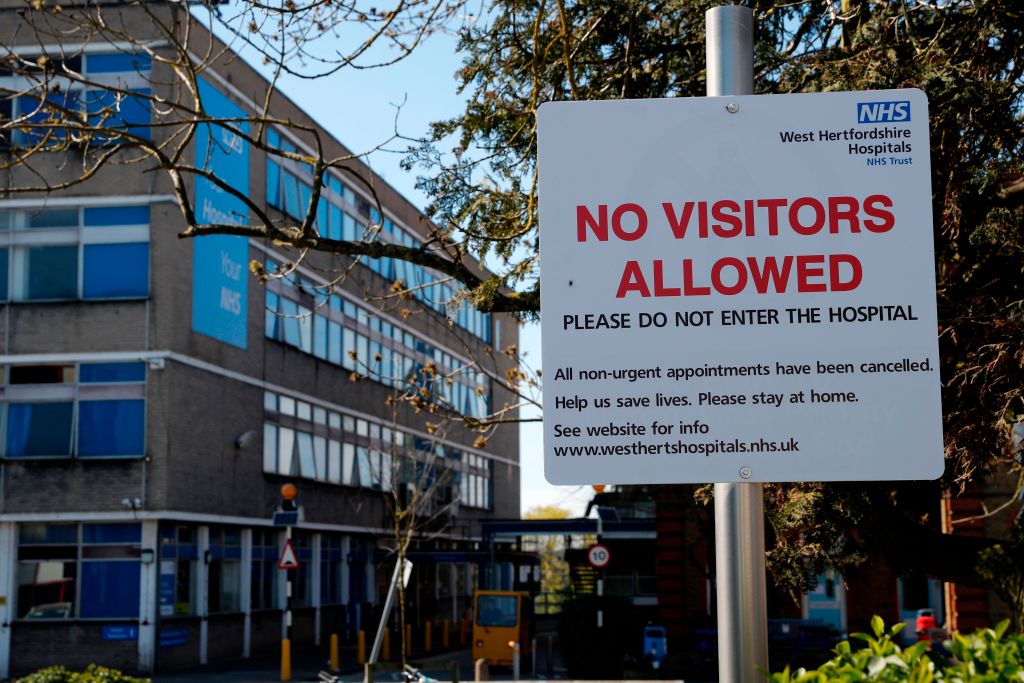Where have all my patients gone? I’ve been asking myself this question increasingly over recent weeks. We’ve heard a lot since the arrival of COVID-19 about illness, health and disease, but the conditions I treat appear to have disappeared.
As a busy neurologist I normally see over 1,500 people every year as part of my job. Many of these people will have long-term conditions such as multiple sclerosis, Parkinson’s disease, epilepsy or migraine which affect millions in the UK. New cases are diagnosed all the time and flare-ups occur for existing patients, even when they have the best treatment. Yet this is no longer happening. While some consultations still happen over the telephone, new referrals have dramatically reduced and I am now seeing around half the number of patients as normal. It could be that no news is good news, and there has been a recent reduction in cases, but I suspect this is wishful thinking, and many are suffering during the lockdown.
Neurologists see a lot of chronic diseases. The brain is a resilient organ but it is hard to completely cure — people who develop neurological conditions tend to face uncertainty and disability throughout their lives. Their disabilities still continue despite the COVID pandemic. And undoubtedly, the uncertainty felt by sufferers of long-term neurological conditions has intensified during this period.
For my patients it is often mental health and quality of life issues that weigh heavily and are the dominant outcome of their disability. The ‘invisibility’ of their symptoms makes the management of their conditions more challenging. It’s why no news is definitely not good news and why I am currently so concerned about their health. A perfect storm is being created. Important but often ignored conditions such as multiple sclerosis seem to be well down the list of health priorities at present, as access to primary healthcare becomes more difficult, specialist nursing support is deployed to wards to tackle coronavirus, clinic appointments are virtual if they are happening at all and patients fear going to hospital in an emergency in case they are infected. Behind the closed doors of the lockdown this is happening to some of the most vulnerable people in our society.
If you suffer from a chronic disease you are less likely to be in a relationship, have a close family or a wider support network. Now during the lockdown, means of accessing community and health services have all but disappeared. I fear for the health consequences of what is being created by our ‘treatment’ of COVID-19.
There is much talk of lives lost in this pandemic and lives that might be ‘saved’ by the policies we adopt. It seems, when you listen to news bulletins or press briefings, to be a narrow debate. There is no talk of the wider health issues, only fatuous slogans imploring us to ‘protect the NHS’. It appears the way we protect the National Health Service is for significant sections of the population not to use it. If this really is a ‘war’ against an enemy which could be vanquished by staying indoors then the sacrifice might be justified. But what should have been clear is that in a pandemic this is simply not possible. Instead, a grown-up conversation needs to take place.
As a doctor I am passionate about saving lives, but I am also passionate about preventing disability and improving people’s quality of life. The daily coronavirus death count in news reports every day lessens this balance — it appears to value one disease more than any other. We were told that scientific modeling led to the lockdown decision being taken. That would be fine if the decision had no effect other than the intended mitigation of death from the COVID-19 pandemic. But here lies the problem: there is a ‘bigger picture’. Something that scientists immersed in their world of modeling may not see.
I suspect when the modeling was undertaken and the government was being quoted various possible and undoubtedly horrific death tolls, a lockdown policy which — in the view of mathematicians and epidemiologists — would significantly mitigate this was received with open arms. But was the cost in terms of people already ill or about to become ill with other conditions taken into account? I have no doubt serious illnesses and diagnoses will be delayed and missed as a result of measures preventing people from being infected by COVID-19. Has anyone actually asked the people we are supposed to be ‘protecting’ about this?
***
Get three months’ free access to The Spectator USA website —
then just $3.99/month. Subscribe here
***
The British public overwhelmingly supports the current lockdown. But this is based on the view that it will be limited in duration, and that there will be a return to ‘normality’ once it ends — with the economy recovering and with little impact on the health issues that are currently being ignored. I fear this is a fantasy.
It could be a month at best before restrictions start to ease, and there may be no early end to social distancing — a policy which hits people living on their own and with chronic diseases the hardest. There is even talk we must wait for a vaccine and all don face masks. How then do we manage the health issues of people with pre-existing conditions and the elderly in this context? I hope this is being actively considered and future policy takes this into account. My concern is that the ‘disappearance’ of my patients means they will have no voice in decisions made which will hugely impact them as we come to terms with this pandemic.

























